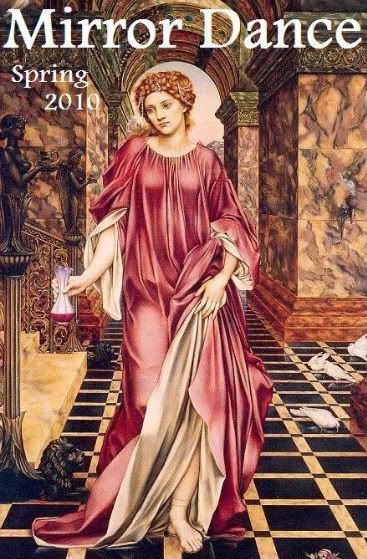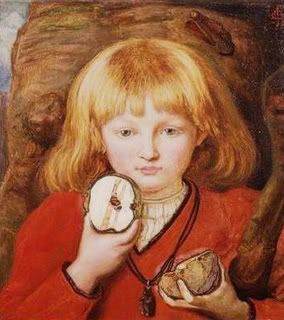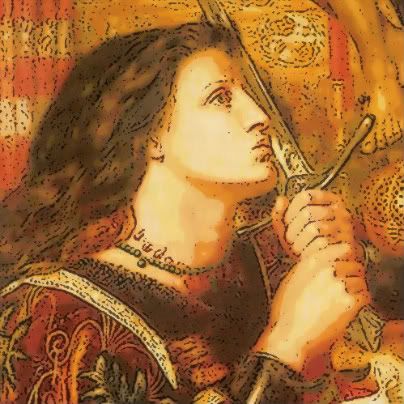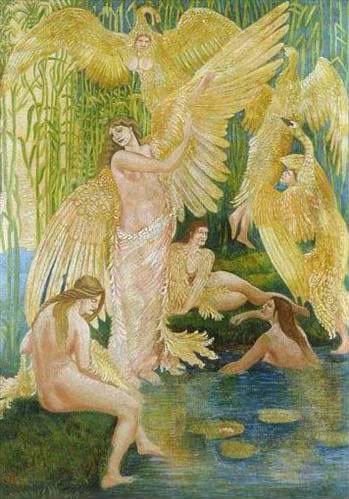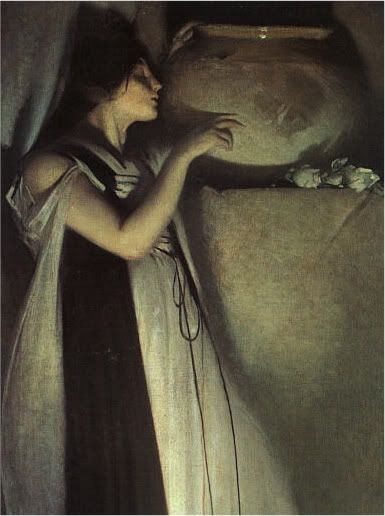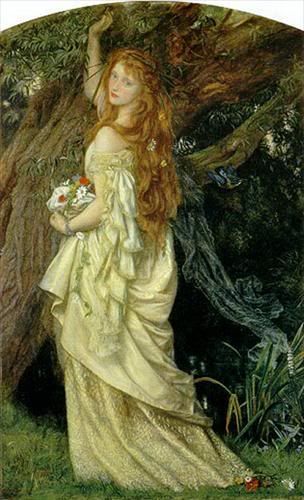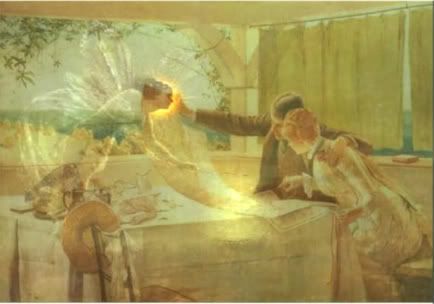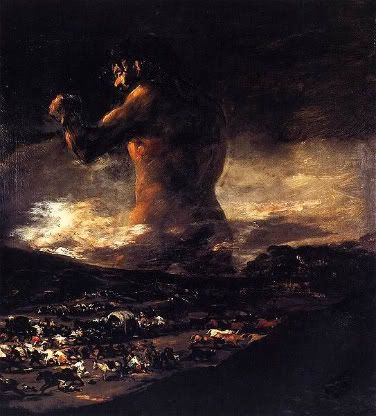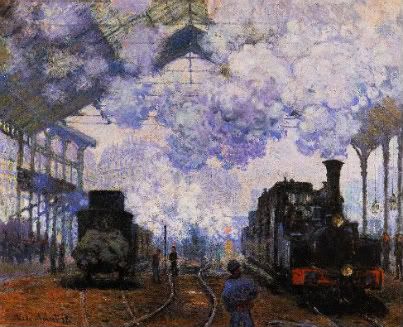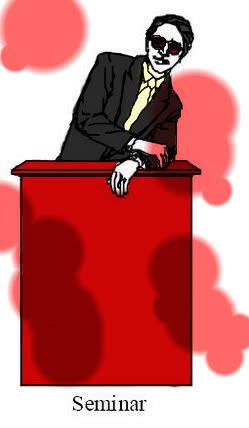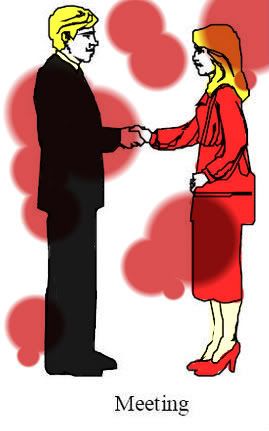Oblivion
by Meghann McVey

“Good evening, boys. Rascalpia.” Elerdim, my father-in-law, helped himself to one of my husband’s whiskey shots. “The old dispute rages, I presume?”
“The inconstant sea will always be more difficult to map, Father,” K’harl said. I pounded the table with my fist to assert my agreement. While I sailed our boat, my husband recorded shallows and deeps, twists and turns, the emptying points of rivers and marshes. Jondahn’s land maps, which I inspected at my husband’s insistence,
were skilled. Nonetheless, they could not compare to K’harl’s.
“I maintain, Father, that land is the trickier of the two.” Jondahn slid his oily smile from Elerdim to his brother. “I wonder if your so-called talents would serve you, should we trade places,”
“Of course they would!” I snapped.
Despite K’harl’s formidable size, his heart was as vulnerable as an unanchored ship in a storm; he doubted his own abilities, and his father’s love. That was part of the reason he chose me for his wife. I was as large as a man, with skin frequently as red as my hair from the cold salty air’s constant abuse. I had known neither mother nor sisters; with my father, I learned to sail, repair nets, and clean fish. My love made K’harl feel protected, but even I could not save him from himself.
“What an intriguing prospect.” Elerdim’s eyes were the gray-green of fitful waves. My father had told me that before my father-in-law settled down as a fisherman, he had gambled away several fortunes. “I should like to see the results of such a contest, too.”
“But why?” I said. “It seems pointless.”
“What could a woman understand of such things?”
I scowled. Unlike my father, Elerdim had never considered me an equal at sea, or any other aspect of manly life.
“Sons, I should like you to trade places as Jondahn has said. Then I shall know who shall inherit my fortunes upon my death, as well as my blessing.”
“Such stakes! Father, are you certain?” K’harl said. “I would gladly share your wealth and blessing with Jondahn. We are so near in age. It seems pointless to withhold a birthright for the sake of mere moments.”
I was reminded of Elerdim’s gambling legacy. Something my father always said about grog echoed in my mind: An ancient demon’s arm reaches through decades.
“I think it is a grand idea,” Jondahn said. “In addition to money and Father’s blessing, I shall at last find the answer to my question: which of us is the more apt cartographer?”
“You shall each set a place for the other to map,” Elerdim declared.
“Jondahn shall map the southern shoals,” K’harl said. “Since I will be absent from my work, he shall continue it.”
“You, brother, shall explore and chart the forest to the north.”
K’harl raised an eyebrow. “Is that to say no one has mapped it before?”
“Indeed.”
“But why?”
“It is a mysterious place, enchanted some say.”
“Now just a minute!” I banged my fist on the table, and our glasses jumped. “That’s not fair.”
“There is a way through,” Jondahn reassured us with his sea serpent charm. “That man by the fire tells of it to all who would listen. One who could map the forest would doubtless amass fortune and fame.”
K’harl and Elerdim stared raptly at Jondahn, but their minds were elsewhere. Elerdim, like most aging men, went weak in the knees at prospects like a long-lived name. And K’harl could not resist this chance to please his father. What they both overlooked, however, was that Jondahn served only himself. To venture into this forest would bring only grief. Before I could tell K’harl, however, he had already risen.
“Wait, love!”
He did not heed me. Disgusted with the whole situation, I stalked after him.
Near the fire, an old man sat wrapped in a bearskin. He had hacked a hole through the neck for his face to poke through, and the bear’s head rested atop his. A stench emanated from him and his garment, so powerful I almost thought I saw flies still buzzing around the bear’s ears.
“I’ve heard you possess knowledge of the forest to the north. Won’t you tell us about it?”
The man answered, not with words, but a grunting growl. Then the bear’s head dipped slowly downward. The man’s rumbling voice belied his feebleness, so powerful I could feel it between my ribs, competing with the rhythm of my heart.
“A Marinari wizard named Gregor created the forest–Oblivion is its name—entirely by magic atop the plains north of Kinsmeith. He chose that place because it was devoid of settlements, useful vegetation, or industry. The function of this foul maze of trees, as Gregor related it to me long ago, was to serve as a dumping ground for failed magical experiments.”
“Wait a minute! How would you know any of this?” I demanded.
The old man gripped his necklace of bear’s teeth so tight I expected blood to pour from his hand onto the floor. “I was once an esteemed lore master in the capital. However, I broke away in favor of a shaman’s aesthetic life.”
“Please, continue your story, sir.” K’harl’s pencil scribbled furiously atop the sketching paper he carried wherever he went, as though he were an acolyte taking notes.
I gaped at him. “You can’t be taking this old coot seriously!”
“I
will have my father’s fortune!” he answered.
The old codger continued his tale.
“Because the mages and scientists conducting these experiments were nearly three hundred miles from the forest, Gregor established a portal which would serve as the center of Oblivion. In placing the portal, Gregor anticipated that some experimenters would desire to retrieve what they had thrown away, or attempt to recover the cast-offs of another researcher. To help them navigate Oblivion’s maze, Gregor made six areas, known as Constant Islands, immune to his illusion, which dominates the entire forest.
“This illusion, the most cunning enchantment Gregor ever wrought, affected Oblivion’s trees. Although they seem real enough, at random intervals, they change to mist and drift away to a new location, altering the forest’s configuration. Thus, Oblivion is a living maze with moving walls, from which nothing rejected by Aurinos’s experimenters shall escape.
“As to the Constant Islands, they consist of a clearing where the sun penetrates; the area containing Gregor’s portal; a cluster of solid trees growing close together in a circular formation; a black pool of water surrounded by mosses and lichens; a place haunted by a white stag; and a spot devoid of trees, but for a single stump where the guardian beast of Oblivion keeps its lair. One has only to pass through two Constant Islands to find the portal to the capital again and three to return to one’s point of entry. However, once one has exited, it is unlikely that a second journey through the forest will bring you to the same Constant Islands. And woe to those who come to the stump. The beast hungers ever; of Gregor’s spells, this one was too potent.”
I grabbed K’harl’s arm. “You can’t expect to map such a forest! Do not accede to your brother’s challenge!” I said as we returned to the table.
“If I do not, Father may give Jondahn my inheritance simply because I seem cowardly.”
“But the stakes are unfair!” Even as I warned K’harl, I knew profit preoccupied him. After all, the lore master had not said the forest was impossible to navigate, only exceedingly difficult. Finding the Constant Islands was the only way to the forest’s true path.
Had I been any other woman, I would have made a scene. As it was, I vowed to follow him into whatever peril we would face and protect him.
“I accept Jondahn’s challenge!” K’harl said when we returned to the table we had left.
“Are you certain?” Elerdim said. “It sounds very difficult compared to Jondahn’s task.”
K’harl stood straightened and fixed an unwavering gaze on Elerdim. “You need not doubt me, Father. I shall find a route through that plague of a forest.”
“It is decided then,” Elerdim said. “Jondahn has pointed out to me that if we base the task on your progress, K’harl, we might wait a long time. To prevent damage to your livelihoods, we have decided to restrict the reversal to one month’s time. Is this term agreeable to you?”
“Yes.” K’harl’s neck muscles bunched together. I wondered with a little shiver if he would start out tonight.
“So you’re saying that if K’harl maps the forest successfully within a month, he will win the inheritance,” I said.
“Yes,” Elerdim said.
“In that case, let’s go, dear. We’ll want to get an early start.” Actually I just wanted to get away from Elerdim and Jondahn. K’harl looked obstinate, but I planted my hands on my hips and whispered, “I will carry you out if you don’t come
now.”
That got him to his feet. My husband is a formidable man in size and stature; otherwise I would not have been attracted to him. But I could hold my liquor better. When he drank, we became equals in terms of strength.
I scowled all the way home.
Long before I was ready to get up, K’harl woke me with the clatter of pots in the kitchen. I trudged in and found the table covered with bread, cheese, apples, and dried fish.
“What the hell?” My stomach tossed like driftwood in storm waters. I squinted against the lantern light.
“It’s breakfast, lunch, and dinner for the next three days,” K’harl informed me.
“Wait just a minute.” I glared around the kitchen through smarting eyes. “Where’s the coffee?”
K’harl smiled sheepishly. I groaned and sat down at the table. He was just like a little boy before the May Day boat races.
“Tell me you aren’t excited about going to that forest.”
“I don’t like lies, Rascalpia. You know that.” He bent and kissed my cheek, out of caution for the alcohol remnants and morning breath.
“Jondahn is a self-serving bastard.” The few arguments I had with my husband usually opened in this manner. “He’s set you up so you will lose.”
As he always did, K’harl argued back, “Which is why it will be all the more stunning when I prevail. Father will have to acknowledge my skill then. In any case, my dear,” K’harl gave me a smile as devious as Jondahn was charming, “you had best get going if you want to come along.”
“I’m not going on a stupid hike! I’m a sailor!”
K’harl held up his hands, still smiling, and started out the door. I waited a few minutes, my heart pounding.
In ten minutes, I caught up to him.
“You’re crazy,” I spluttered. A loose cobblestone caught my toe, and the pewter mug I had filled with coffee sloshed onto my hand.
“Cal, are you alright?” K’harl stopped abruptly to inspect my hand. “That’s a nasty burn.” He whipped out his handkerchief, wrapped it around my hand, and said in all seriousness, “Do you think you can keep going?”
“I’m fine,” I insisted. Now that I was fully awake, there seemed no reason for my snappish tone. I would have to make it up to him somehow.
Beyond the north gate of Kinsmeith, winter held the land fast. The ground was hard, frozen in parts, I suspected.
During our comfortable silence, I found myself thinking of the benefits of beating Jondahn at his father’s bet. He’d never bring up the argument about the difficulty of mapping land or sea again. And I couldn’t say I would feel sorry to snatch his inheritance from him. Looking back on K’harl’s and my sea adventures, I recalled that past challenges had always brought us closer. What could possibly inhabit this forest that K’harl and I together couldn’t handle?
“How far to Oblivion?” I asked K’harl after the fifth hill. My husband shrugged. I sighed heavily, but before I could voice a complaint, we sighted the trees.
At first sight, I knew I would never see the like elsewhere. In the dusting of silver light, the forest was a mass of tangled shadows. The trees, twisted towers of darkness, spiraled skyward.
“Magnificent,” K’harl whispered. He reached out to touch the ancient bark, but the tree’s form wavered under his hand like a disturbed reflection in the water.
“Let’s not do this.” It was no plea that I uttered, but facing this forest, I felt fear like never before, even during the sea’s most violent storms.
“I must find the forest’s secret,” K’harl said. “Father and Jondahn will see.”
I trailed after him, wishing I had brought an axe. All that the lore master had told us tangled and unraveled in my head. Constant Islands, I reminded myself. That was what we were here to find. But how could one focus on Constant Islands when the trees themselves were inconstant?
Our first hour in the forest, I saw at least ten trees vanish and twice that number appear to block our path. Each time, K’harl patiently turned aside from the path. For me, I could determine no logic to his course. Wouldn’t a straight path through the forest better serve those few travelers mad enough to brave this way? It would certainly conserve our energies better.
At midday, we reached a massive ring of trees. It must have consisted of over a thousand trunks growing together in strange organic unity. Gaping in amazement, K’harl and I walked around them. Then he stopped and consulted his notes.
“Just as I thought. We have found the first Constant Island.”
After lunch, K’harl set to sketching, by lantern light because of the thick canopy above us. Having been married to him for over five years, I knew well the other kinds of magic his hands could weave, despite how large and clumsy they seemed. Watching the scene appear beneath his pencil was a miracle in itself. However, this drawing was different from the ones K’harl usually did.
“This isn’t a map,” I whispered into his ear. “It’s a sketch.”
K’harl smiled. “A traveler’s guide would be rather silly without pictures.”
“I don’t know.” I bit his earlobe and tugged. “You can be rather silly.”
Suddenly the pine scent, while it would never replace the salt perfume of the sea, was pleasant in its own right. K’harl sketched for a few more minutes while I teased him. At last he set it down and gave chase. We frolicked like sea nymphs until I could no longer stand it and let K’harl catch me.
After our coupling, I slept and dreamed I was back on our boat, the Wind Singer. “Beware! Beware!” the sea hiss-whispered.
I woke with a stiff neck. The gray winter light kept me from determining whether it was still this afternoon or the next morning. K’harl raised himself from my embrace, but he did not smile at me as he usually did. The dull light of the forest afternoon reflected strangely in his eyes. I dressed hurriedly, eager to finish with this forest and return to the sea.
Despite their name, the Constant Islands did not appear at a constant rate. K’harl and I ate as we walked, but saw no end to the maze of spectral trees, even well after the next mealtime.
“K’harl, I’m starving,” I complained at last. “And my feet are killing me. I have to stop and eat.”
“Not now, Cal.”
“What do you mean ‘not now?’” I increased my pace at great annoyance to my aching feet. To my surprise, K’harl had his sketchbook balanced in one arm, indicating the twists and turns of our path much as he charted our route at sea.
“What use are such notes here? The trees have such a strong will that they control whether they
are or not!”
“It’s proof that I didn’t just sketch based on the lore master’s stories. If I can show a way from Constant Island to Constant Island and sketches of the seven, Jondahn will-“
“Why do you feel obligated to create more difficulties for yourself?” I interrupted. “There’s no way to map something completely random!” K’harl had no answer, so I sat down and tore off a hunk of bread. At last K’harl sat, too.
“I’m sorry, Cal. But when I think of that bastard flaunting my inheritance at us-“
“For that matter, why map all seven islands when three will do? Just fulfill your task,” I said.
After eating, we rose. Now that K’harl was not sketching, we made better time and came upon a constant island with a tree stump at its center. K’harl sketched it, while I explored. As I ran my finger along the gashes in the wood, my gaze fell on tracks that surrounded the stump. I had mistaken them at first for sinkholes or burrows of some sort. Closer examination revealed seven toes on each foot with distinct claws marks.
In a flash, I remembered what the lore master had said. In one of the Constant Islands lurked a beast that “hungered ever.”
“K’harl,” I whispered. “Are you nearly done sketching?”
“Barely half-finished, Cal.”
My stomach churned as though it would expel the food I had clamored to eat only a short while ago. Across from me, the bushes rustled. I backed up so fast that I crashed into K’harl. Pencil and sketchbook flew from his hands. “Do you remember what the lore master said about the beast?” I told him.
K’harl glared at me as he retrieved his sketching implements. “That it lived on a Constant Island with a tree trunk in the middle of it.” Then he seemed to comprehend his own words. “I’m certain I can remember the rest of the scene from memory. Let’s go, Cal.”
“Wait.” I caught his arm just as the bushes began rustling again. K’harl’s skin pebbled beneath my fingers. “What’s to say the beast won’t follow us?”
“Nothing,” K’harl said. “If it’s like any other beast. But Oblivion is like no other forest, so I imagine its guardian is unusual too.”
I recognized this talk as K’harl’s attempt to make a subtle plan of escape. Neither of us had weapons; it had never been our habit to carry them at sea because Kinsmeith waters were too rough for pirates and the cargo too poor. At every step, I wondered if our lack of foresight had been a fatal mistake. Suppose we returned to the forest corridors and encountered some of the discarded magic experiments transported here from the capital? Abruptly I clamped down on my thoughts, knowing if I gave them free rein, they would paralyze me.
“Come on, Cal,” K’harl said. “One more island. Then we can exit.”
“We had better,” I said. “Three islands grant passage through this forest! That should be more than enough for your father and Jondahn!”
Fog wrapped likes snares around our ankles as we exited the clearing. The leaves had fallen so silent it was as though they were carved of wood. However, I sensed unseen eyes watching us.
Every so often, K’harl turned to watch for motion from the bushes. I started doing it, too, wondering wryly what good it would avail to see the beast before it pounced.
Without warning, light filled my eyes to bursting, nearly sending K’harl and me stumbling in amazement. When I see that light in my memory, I realize it was only brown light, scarcely brighter than the sun’s faint winter efforts. Nonetheless, it was as the shine of a generation of riches upon my eyes.
The beast must have perceived how the light dazzled us, for it was here that it struck. It soared from the bushes, strangely graceful in flight. Then its shadow-seeming form landed with a thud that knocked my husband and me – both sturdy sea-farers – off our feet. I landed seated with my hands behind me. K’harl had kept his feet, but had been parted from his sketchbook. “Over here, beast!” he called in the voice that had shouted down storms.
The creature turned from me. A tar-black tongue crept from its mouth to touch its nose; how often I had seen our ship’s cat do the same. In fascination, I stared at the beast, its features clear to me now that my eyes had adjusted to the light. Its immensity could crush even my swarthy husband and me like toothpicks. Cutlass-sized barbs lined its spine and were especially concentrated at the end of its tail. It crouched; the deadly tail zipped past me. I dodged, only to watch in horror as it ripped out the middle of a tree.
“Go, Cal!”
“K’harl!” I yelled, motioning him toward me. The beast’s hide drew my eye, and I gasped in revulsion. Faces, all of them frozen in mortal terror, stared out of it. I could only imagine whose they were: magic experiments? Hapless travelers?
“I’m coming!” But K’harl’s eyes were on the sketchbook. Now the beast struck with a paw that moved so fast I could barely see it. K’harl rolled away with reflexes primed at sea. He might have broken and run then. Sometimes in the night I dream that he recovered his feet, rushed to me, grabbed my hand, and fled that evil place by my side.
Instead, the beast leaped toward him with a roar that caused me to clap my hands over my ears. Though I screamed in pain at the sound, I could not hear my own voice. During the keening wail that was the beast’s battle cry, I squeezed my eyes shut. I opened them just in time to see the beast’s tail arcing toward me, just as a cat would swish its tail before pouncing. The impact knocked me into breathless flight. When I landed, light surrounded me, so dazzling I thought the creature had killed me. At last the fuzzy outline of the trees came clear, and I realized I had been knocked clear of the forest. The clearing where K’harl and I fought the beast truly was the third constant island. But, K’harl! I sought around me with frantic false hope.
At last I could deny it no longer. K’harl remained behind, defenseless, with no chance of escape. I had no choice. Though I loathed the forest, I had to go in and get him out!
On trembling legs, I started for the trees. However, before I did, the lore master’s voice echoed in my mind. Even if I reentered the forest, there was no guarantee that I would be at the same place I had left. More likely I would materialize in those damnable tree passages. I could enter and exit in only three Constant Islands without ever seeing K’harl. Indecision tore at me until I collapsed.
“Come out, K’harl,” I whispered. “Please come out!” Tears raged in my eyes. Somehow I dragged myself back to the home we had shared, though I did not stay long. I stalked to Elerdim’s house, at the edge of town facing the sea. His wan visage matched the gloomy, fitful sea. I imagined I looked little better and wondered if the paternal love he had always hidden from his sons had alerted him to K’harl’s certain death.
“Rascalpia,” he said at last. “I have news for K’harl. The inheritance is his.”
“Do you mock me?” I reached for his throat to crush the mirth from it.
“Why, no! Do not be hasty!” he choked. Some wisdom compelled me to listen. “My dear, clever son Jondahn is dead. The contest is ended.”
“Dead?” I echoed numbly.
“For all his boasting, Jondahn was never a skilled sailor. He ran aground at the shoals. Since that is an area few sail without K’harl’s maps, no one dared venture out to rescue him.”
Even now, I still count it among my greatest feats of strength that I finally raised my eyes to Elerdim. “I have news that will grieve you further. Jondahn’s cleverness has killed K’harl. The forest beast swallowed him up.”
“Woeful day!” Elerdim moaned. “I should not have goaded my boys against each other!”
Though my sorrow afforded me empathy for my father-in-law, I had no comfort for him. As much as I wished it, this was not to be our last meeting.

Although I never found K’harl’s body, I placed a marker to him on the outskirts of the forest. One day when I came there to pray for his soul and remember our time together, I found his sketchbook half-hidden under a bush. How I cursed the forest. I almost gave in to its trick, plunging into its depths to see if I could find his body.
K’harl’s sketches of the three Constant Islands were all intact, and so I brought the book to Elerdim. “So you see, K’harl did what he could to ease travelers’ journeys through the forest.”
At this, Elerdim burst into tears. “Ah, K’harl. How I wish I had not ignored your quiet deliberation, your dedication to all you pursued.” He wiped his face on his ragged shirt, then turned to me. “Forgive me, Rascalpia. This praise comes too late for my dear son. K’harl
was the better cartographer.”
I found a measure of forgiveness for that poor wretch then.
Elerdim sighed. “I can never atone for my short-sightedness. But that is inconsequential. My time draws near, and that shall be the first thing I will tell K’harl. In our eternity together, I shall learn what manner of man he was, unhindered by my vices.”
I put my arms around the old man then. Even so, much time passed before I could shake off my own bitterness. Although Elerdim could expect to reunite with K’harl soon, I faced a long, lonely life of memories and what-ifs. Sometimes, sailing our ship, converted to a fishing vessel, I hoped an accident would bring me unexpectedly back into my love’s presence.
One night was to change all that. In a dream, I heard a tapping at the window. When I opened the shutters, I saw K’harl, awash in ghostly silver moonlight. In life, my husband rarely smiled. His mind was always occupied with perfection on his canvas or concentrating on the scene before him. Though he looked on me with love, his smiles were always small and inhibited. I always thought of them as the first shy rays of sun to sneak through the winter clouds.
But in this dream, his smile was an unabashed beam. Looking into his eyes, I knew the cause at once. At the cost of his life, K’harl now knew the full measure of his abilities and his father’s love.
* * *Meghann McVey holds a Bachelor of Arts in English with a Creative Writing concentration from Louisiana State University and is currently pursuing her M.A. in English at Cal State Fullerton. She is keenly interested in other languages, particularly Japanese, and also enjoys Disneyland and the beach. Ray Bradbury is her favorite author. Her website www.myspace.com/lachlan_of_marinus contains information about
Lachlan of Marinus, her first novel which has been accepted for publication by Westbank Publishing.
Where do you get the ideas for your work?Meghann’s ideas are a Frankenstein’s monster built from her daily experiences and fused together with the profound thought dimensions her favorite authors, artists, and videogame designers have opened to her. Yet it is music in countless forms that bestows the essential spark of vitality on all her creations.
